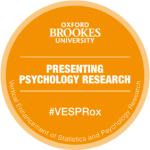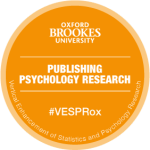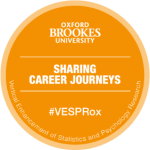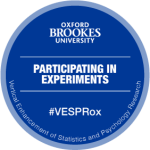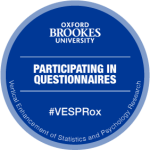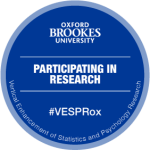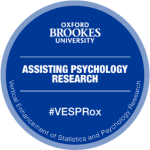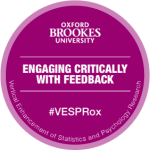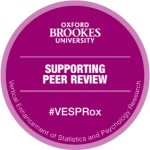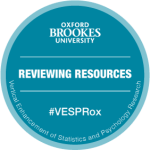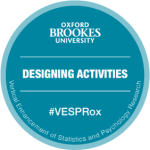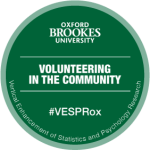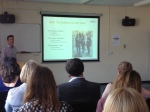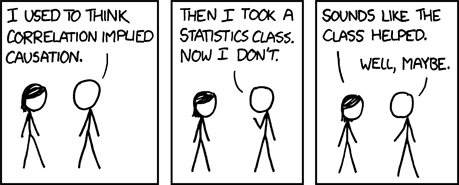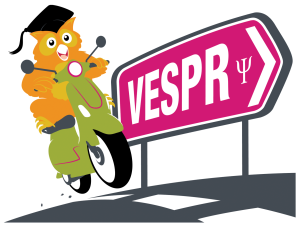The BPS workshop on transitions in psychology was an excellent opportunity to meet with psychology academics and teachers and discuss how we can make a smoother transition from school to university and to the world of employment. Here I have included some of the interesting points that were raised during Julie Hulme’s and Peter Reddy’s presentations, as well as from the discussion with other attendees.
Transitions can be exciting but also very challenging. Students face substantial difficulties at the beginning of their degree and there is often a gap between students’ expectations and reality. For example, students are told that they will need to become independent learners at university, but they often don’t have a good understanding of what that means. Some of them appear to expect that the lecturer will tell them which book chapters to read, and they will go away and read it and all will be fine. They soon realize that there is not as much hand-holding as there is at school, nor a predefined narrow curriculum. Another typical example of the gap between expectations and reality is the amount of statistics and research methods that psychology students have to go through. And of course there are many differences in terms of teaching and assessment between the two types of education. For example, A-level students are not required to write essays, which explains why students tend to struggle with essay writing when they first arrive to university.
It appears that nothing can fully prepare the prospective students for university study. Not surprisingly, the first year is the most precarious for dropping out of the degree. Apparently around 8% of first students drop out and around 40% have considered it. Ethnic minorities and mature students are higher at risk.
So how can we make the transition from school to university smoother and reduce the high drop-out rate for the first-year students? Social networks are crucial. Support from family and friends is a strong protective factor. It is also very important that students establish a new supportive network of friends at university. Students should ideally feel part of the community of psychology that includes lecturers, students, receptionists, technicians,everybody involved in running the department. To promote a sense of community, departments tend to organize social events out of the curriculum. Although these can be successful and effective, there are not always inclusive. For example, evening events that include alcohol might not be well-attended by mature students with families and/or those not drinking alcohol due to religious reasons. Apart from face-to-face events, Facebook groups for first years students to join can be created, where students can exchange ideas about their subject matter and feel part of the psychology community. Vertical tutoring can also provide support; advanced students mentoring less advanced students can prepare them for what lies ahead and give them valuable insights into university study. This is something that is about to start here at psychology at Oxford Brookes.
Communication between teachers and lecturers is paramount. This can be done through BPS meetings – such as this one! They could also collaborate to create more effective events that might help the transition from school to university, such as induction for first year students. At the moment the induction typically lasts a week, and students are mainly asked to attend a variety of talks given by university staff. Perhaps a longer, more inclusive and active induction can be arranged during the summer before the first years start university, in which prospective students get involved in projects. Furthermore, lecturers and teachers could collaborate to deliver lectures at the schools. Another idea is peer observation between lecturers and teachers, so that they have first-hand experience of what each other’s job entails. One of the important differences between teachers and lecturers is that teachers have a prescribed curriculum while lecturers can create their own materials and assessment. As a result, different psychology departments have a different focus and specialization. It is important that teachers are aware of that so that they direct their pupils to the psychology course that is right for them. University websites could become more accessible to help teachers and pupils in that respect. Other ideas suggested were that university students could become mentors in schools and pupils could help with university research as research assistants.
Julie Hulme also noted that teaching could be more inclusive for first year students. Their prior learning and experience is not always acknowledged; academics often feel that students should ‘unlearn’ what they learned at school. However, building on what students have already learned could be more helpful for the students. Furthermore, assessment of the students’ knowledge before the degree starts and giving support to those prospective students that have considerable gaps in their knowledge could make the transition to university much smoother and give all students a good baseline before they start their university degree. Finally, Julie noted that the whole degree is in fact a time of transition, and students can find the transition from one academic year to the next very challenging. Hopefully they can draw from their experience of transitioning from school to university, to help them deal with future transitions. Change is difficult, but it is a fact of life and we must all somehow learn to deal with it.
In the happy event that students have completed their degree, a further question arises: how well-prepared are they for the world of employment? Unfortunately, Peter Reddy noted, we can’t fully prepare them for what lies ahead. And, anyway, is this what the university should be about? Should it be about just providing technical skills to help you do a certain job, or should the main focus on cultivating understanding of a certain area of knowledge? Even if some of us, including Newman (1958), agree with the second option, the issue of a smoother transition from university to employment still remains.
Here are some practical suggestions: Some institutions such as Aston University in Birmingham organize regular alumni events, in which current students can discuss with alumni about possibilities of employment after the degree. VESPR organized such an event, and it was intriguing to see what the Oxford Brookes alumni have been up to. Some departments also ask students in their first year to write an essay about their strengths and weaknesses and reflect on whether certain careers would be suitable for them. Such an activity early on can make student aware of what might be the best option for them. A lot of psychology students want to become clinical psychologists, but is this the right thing for them? Does it suit their character, their skills, their talents?
Furthermore, some universities organize career boot camps, where they offer graduates that have not landed on a job some brief training to help boost their chances to get a job. Other universities offer work placements to undergraduate students as part of their degree. Placements are important as the student learns to be part of a professional community and can start reflecting on how to be a professional and how to present themselves professionally. Students that are studying for a degree that doesn’t include placements could potentially take up voluntary placements by contacting local organizations and charities. It is interesting to note that many students opt to do a Master’s after they finish their undergraduate degree. At this point careful consideration is needed as to what they aim to achieve with it. Is it to go on to a PhD, is it studying for its own sake, or would it lead to a certain job? Peter also mentioned vocational programs in Sweden that appear to ease transition to employment. The list goes on.
With our VESPR project we hope to help with transitions within the undergraduate degree, as well as with the transition from university to employment. Our recent alumni event was very well received and hopefully gave some inspiration to the current students about what they want to do next. We were certainly inspired by the amazing talks by the alumni! We hope VESPR will enhance the sense of belonging to the psychology community for the students, even after they have flown the university nest and embarked in their professional adventure.

